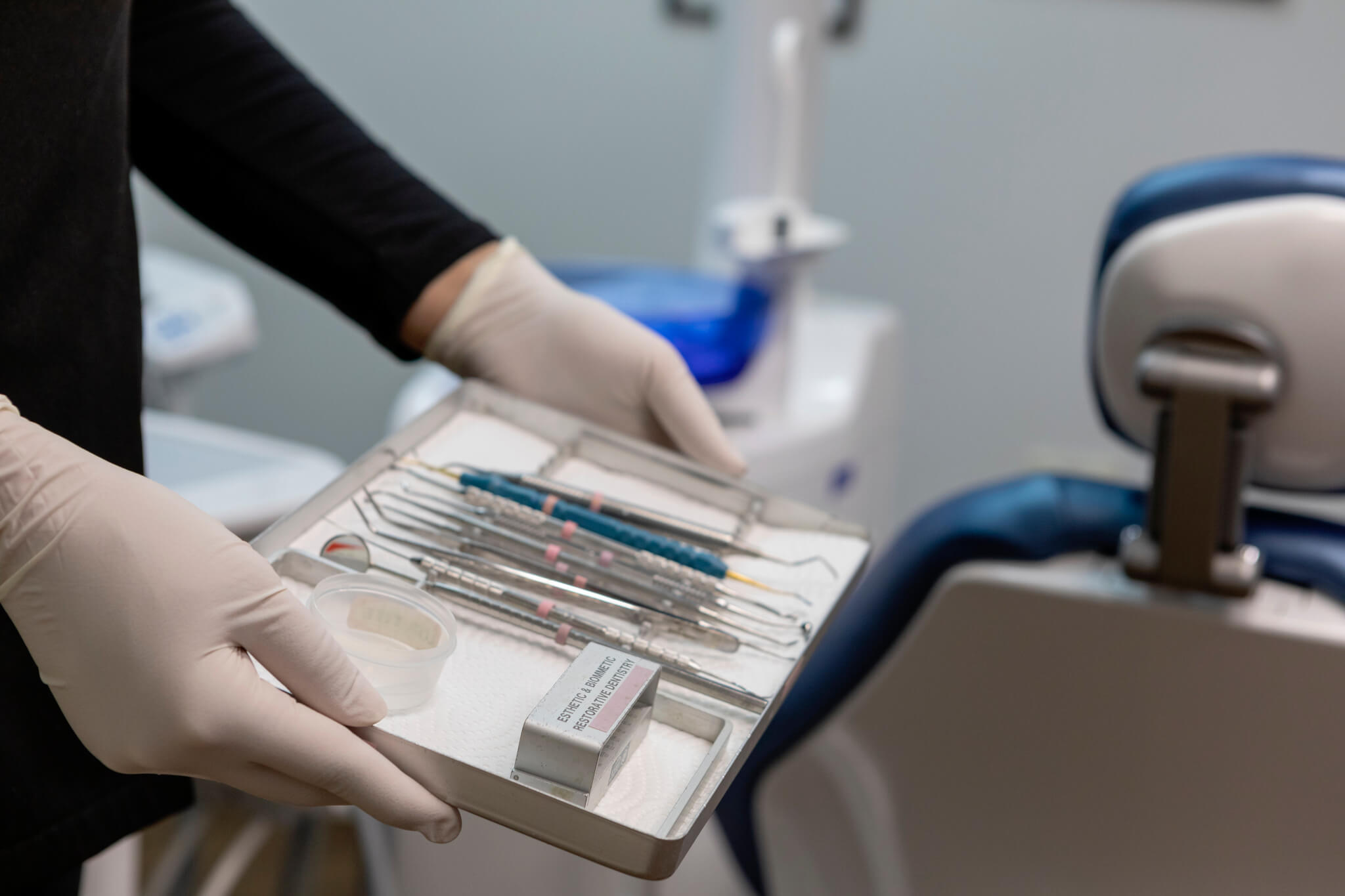Dental fillings are used in teeth which have been damaged by tooth decay to repair and prevent bacteria from entering the tooth, and effectively protect it from any further damage. Unfortunately, many people require a filling in a tooth at one time or another. Although this is often due to poor oral health, occasionally fillings are necessary due to the shape or structure of the tooth which can make it hard to prevent tooth decay in a certain spot.
Types of Dental Fillings
Although silver amalgam fillings are still widely used, we do not use them here at McIntosh Dental. Instead we use composite resin which is a far-superior material to metal fillings. The white filling material allows for a natural look that maintains the aesthetics of your smile. It is also biocompatible and very durable. Tooth-colour composite resin fillings are the material our Dentists would choose for their own mouths, so we use it with all of our fillings patients.

Getting A Filling In Your Tooth
Your Dentist may decide that you need to have a tooth cavity filled during your dental examination and x-rays. Sometimes you may have been experiencing symptoms such as sensitivity or even pain in the tooth when you eat or drink something hot or cold, but it’s also possible that you haven’t noticed any symptoms at all.
We will apply a local anaesthetic to the teeth, gums and surrounding skin area to keep you comfortable and ensure the filling process is painless. It’s normal to be worried about pain, and if you are feeling particularly nervous we have several options for managing dental anxiety that may be right for you, including Drift Away Anxiety Management and Sleep Dentistry options.
Once you are ready for us to begin, our Dentist will remove all of the tooth decay and then give the entire area a thorough clean. The cavity is then ready to be filled with composite resin in a natural tooth colour.
Your mouth is likely to stay numb for a couple of hours following your appointment, so for your safety eating is not recommended until the numbness has worn off. Otherwise there are no special after-care measures you need to take after a tooth filling, so you can carry on as normal.
In many cases regular dental examinations and dental hygiene appointments can help to prevent the first signs of tooth decay from becoming major dental issues, so regular check-ups are essential.
